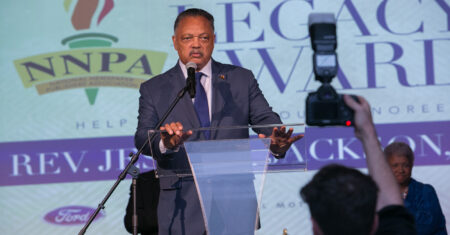By Allyson D. Andrews, MSW, LLMSW, Director of Early Childhood Education, 20 Degrees
The Reality…
Running a childcare center is more than a job — it’s a labor of love. Providers pour their hearts into nurturing children, creating safe and enriching environments, and building relationships with families. But behind the joy of watching little ones grow, there’s the exhaustion of endless paperwork, financial worries, and the daily hustle to keep everything running smoothly. Many childcare providers wear multiple hats: teacher, administrator, mentor, and problem-solver. There’s never enough time in the day, especially when so much of it is spent buried in compliance reports, payroll issues, and operational challenges. For nonprofit centers, keeping up with financial leadership and board expectations can feel like an uphill battle. And the bureaucracy? It’s overwhelming. Repeating the same information across different systems steals precious time, time that should be spent with children.
On top of these operational hurdles, providers are also navigating a workforce crisis. High turnover rates, difficulty retaining qualified staff, and inadequate compensation create instability within childcare programs. Many providers struggle to offer competitive wages, leading to burnout and staff shortages that directly impact on the quality-of-care children receive. Without systemic changes and community support, the burden on providers will only grow heavier. Providers can’t do it alone and when families play a vital role in supporting their childcare community, it is better for everyone: children, families, and providers. Here’s how parents and families can partner with childcare providers:
10 Ways that Parents and Families Can Partner with Their Providers:
- Show Appreciation: A simple thank-you note, small gift, or words of encouragement can go a long way in boosting morale. Childcare providers dedicate countless hours to caring for and educating young children, often going above and beyond to create a nurturing environment. Taking the time to acknowledge their hard work, whether through a handwritten note, a kind message, or a small token of appreciation, can make them feel valued and motivate them to continue providing high-quality care.
- Be Patient and Understanding: Recognize that providers are juggling many responsibilities, so trust their expertise in caring for your child. Childcare professionals manage multiple children, planning educational activities, ensuring safety, and meeting administrative requirements, all at the same time. Instead of expressing frustration when challenges arise, approach them with patience and empathy. Giving providers the benefit of the doubt and trusting their professional judgment strengthens the relationship between families and caregivers.
- Support Communication Efforts: Respond to messages, forms, and updates promptly to help providers stay organized. Childcare providers rely on clear communication with families to ensure the best care for children. Whether it’s filling out required forms, reading important notices, or providing updates about your child’s needs, timely responses allow providers to stay on top of operations and minimize administrative burdens. When families actively participate in communication, it creates a smoother and more supportive environment for both children and caregivers.
- Advocate for Fair Wages and Funding: Join local advocacy efforts to push for better wages and resources for childcare professionals. Childcare providers are among the lowest-paid professionals, despite the critical role they play in early childhood development. Many struggle to make ends meet while providing high-quality care. Families can support them by advocating for fair wages and increased funding, whether through signing petitions, attending local meetings, or voicing their concerns to policymakers.
- Volunteer Time or Skills: Offer to help with small projects like organizing supplies, reading to children, or sharing your professional skills. Many childcare providers operate with limited staff and resources, making extra hands invaluable. Parents can assist by helping organize classrooms, preparing materials, or volunteering during special events. If a parent has a specific skill — such as graphic design, accounting, or event planning, offering those services pro bono can significantly ease the administrative burden.
- Respect Policies and Procedures: Following health, safety, and payment policies allow providers to maintain quality care. Policies are designed to ensure the safety and well-being of all children. Arriving on time for pick-up and drop-off, adhering to illness policies, and making timely tuition payments contribute to the smooth operation of a center. Respecting these guidelines means providers can focus on creating a positive learning environment instead of resolving avoidable conflicts.
- Recommend the Center to Others: Positive word-of-mouth referrals help providers grow and sustain their business. Families play a crucial role in supporting centers to maintain enrollment and financial stability. Sharing positive experiences on social media, leaving online reviews, and recommending the center to friends or colleagues can help providers attract new families, ensuring long-term success.
- Contribute to Wish Lists or Fundraisers: Donating supplies or participating in fundraisers helps ease financial strain. Many childcare providers operate on tight budgets, and even small contributions — such as donating books, art supplies, or cleaning materials — can make a significant impact. Families can also organize fundraising initiatives, such as silent auctions or community donation drives, to aid providers in acquiring necessary resources that enhance the learning environment.
- Stay Engaged in Your Child’s Experience: Build a partnership with providers by asking questions, sharing feedback, and showing interest in your child’s daily activities. Engaged families lead to a stronger learning environment. Ask your child about their day, communicate regularly with teachers, and attend events when possible. This involvement reinforces the importance of early education and shows providers that their work is valued.
- Celebrate Their Hard Work: Recognize the dedication and passion that goes into creating a nurturing environment for children. Recognizing and celebrating childcare providers’ dedication fosters a culture of appreciation and respect. Consider organizing appreciation events, writing positive testimonials, or highlighting their efforts in community newsletters. A little recognition can go a long way in sustaining their motivation and reminding them that their work is valued by the families they serve.
By working together, families and providers can create thriving childcare communities where both children and those who care for them are supported and valued.
Allyson D. Andrews leads a team at 20 Degrees working to support child care, which offers shared services and back-office programs to ensure its provider-centric approach delivers new business solutions for childcare leaders so educators, families, and, most importantly, children, all benefit. With over 12 years of experience in Early Childhood Education, Allyson founded and operated four childcare centers in the Detroit area, serving hundreds of children. Allyson has deep consulting experience in start-up operations, business development, finance, and operations for non-profit and for-profit sectors with a specialization in education.







